The Complete Guide to Ballet Pumps
From its origins in the world of ballet to its current status as a beloved fashion staple, the ballet pump’s understated elegance and versatility set it apart as a shoe style that will stand the test of time. Its simple yet refined and feminine design makes it perfect for reinvention. In this article, we will bring you through the colourful history of ballet flats, how to wear and style them, as well as how to avoid the drawbacks of these popular shoes.
What are Ballet Pumps?
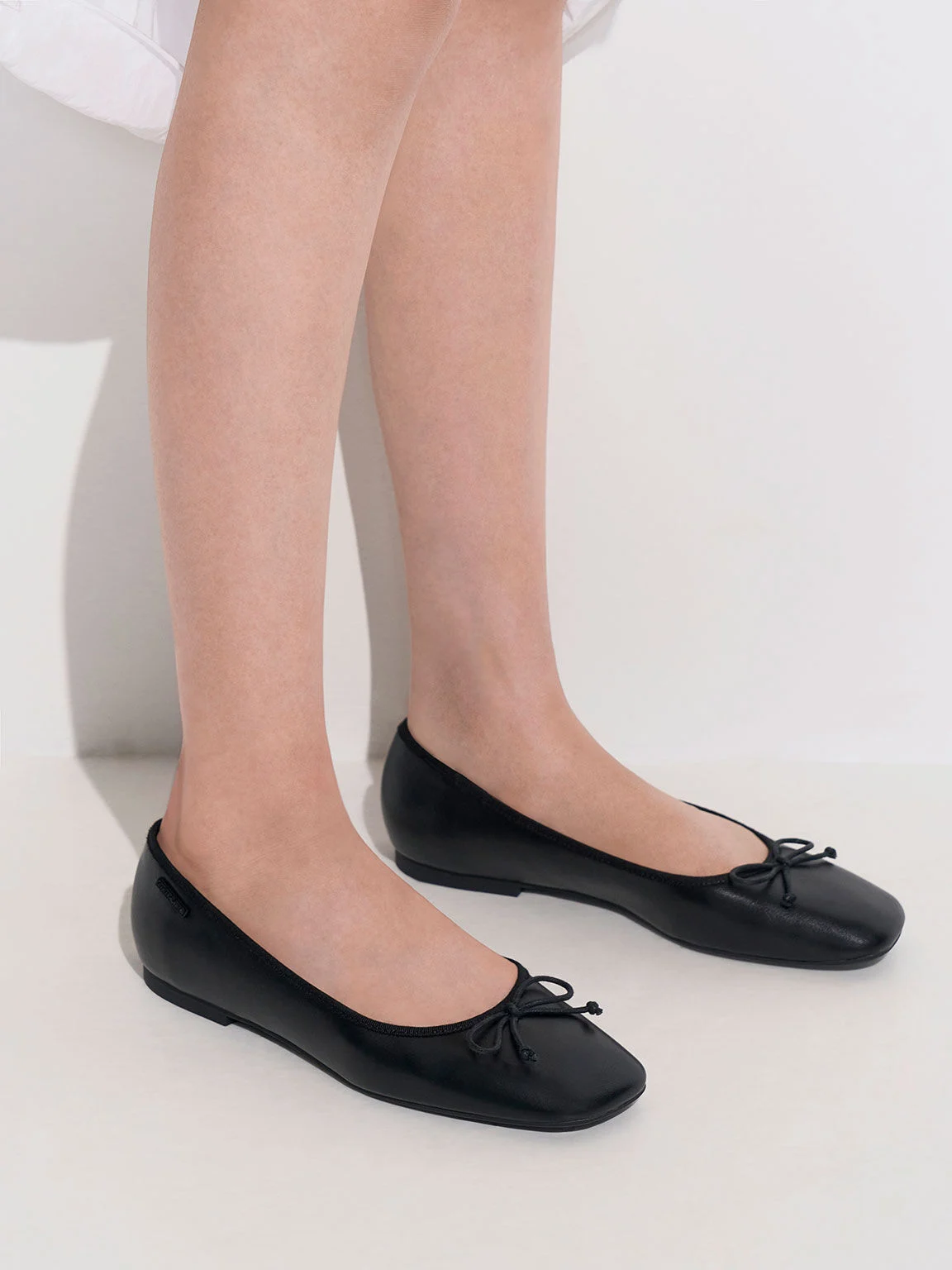
Ballet pumps (also referred to as ballerinas and ballet flats) are a type of footwear that originated from the world of dance. The name “ballet flats” pays homage to their origins in ballet, where dancers wear lightweight and flexible shoes to perform intricate moves. These shoes are characterised by their thin soles (usually no more than an inch or 2.5cm) and closed, rounded toes, providing a sleek and low-profile silhouette. Sometimes, tiny string ties are added to the design, but decorative details are usually minimal and limited.
Over time, ballet flats have transcended the boundaries of the dance studio and become a popular fashion choice for women of all ages. Known for their stylish comfort and simple elegance, ballet pumps are suitable for various occasions, especially for everyday wear. They come in a wide array of materials, colours, and designs. Modern iterations — sometimes embellished with sparkling gems or metallic hardware — have a fashion-forward look.
The Origin & History of Ballet Flats
The earliest version of the modern-day ballet flats first appeared on stage, when the famed 18th century ballerina, Marie Camargo, removed the heels from ballet shoes to create the now-iconic soft slipper silhouette. Later on, Russian prima ballerina Anna Pavlova made adjustments, such as adding a hard leather sole to give her arched feet more support, to make the shoe more wearable. It was in the 1940s that the ballet slipper finally came off the stage and into everyday life. American casual-wear designer Claire McCardell caught on to the style, and worked with the shoemaker Salvatore Capezio to turn the ballet flats into streetwear. This would prompt high-end retailers to stock ballet flats on their shelves across America for the first time, as the shoe style started gaining traction in the fashion world.
Elsewhere in 1940s Paris, Rose Repetto set out to create a more comfortable pair of ballet shoes for her son, a famed choreographer. Her fledgling brand eventually caught the eye of famous French actress and style icon, Brigitte Bardot. Specially designed for Bardot, the flame red Cendrillon ballet flat was born — featuring low vamps, rounded toes and dainty string-ties, Bardot wore these famous shoes in the French film, And God Created Woman. The feature would inspire French women and the rest of Europe to wear ballet flats, quickly reaching ubiquity in the 50s and 60s. As ballet flats made their way into the wardrobes of Audrey Hepburn, Princess Diana, Kate Moss, Alexa Chung and Bella Hadid, its quietly chic and effortlessly polished style has cemented its status as a cult favourite accessory.
In the centuries since Marie Camargo’s dainty ballet slippers, ballet flats have been reimagined over and over again with a plethora of finishes, details and silhouettes. More contemporary versions lean into the hyper-feminine essence of the shoe with cross-straps and intricate bows, paying homage to its dance roots with the current “balletcore” trend. The enduring and versatile ballet flat has lived many lives in years passed and will continue to evolve as a fashion staple in the years ahead.
Types of Ballet Flats
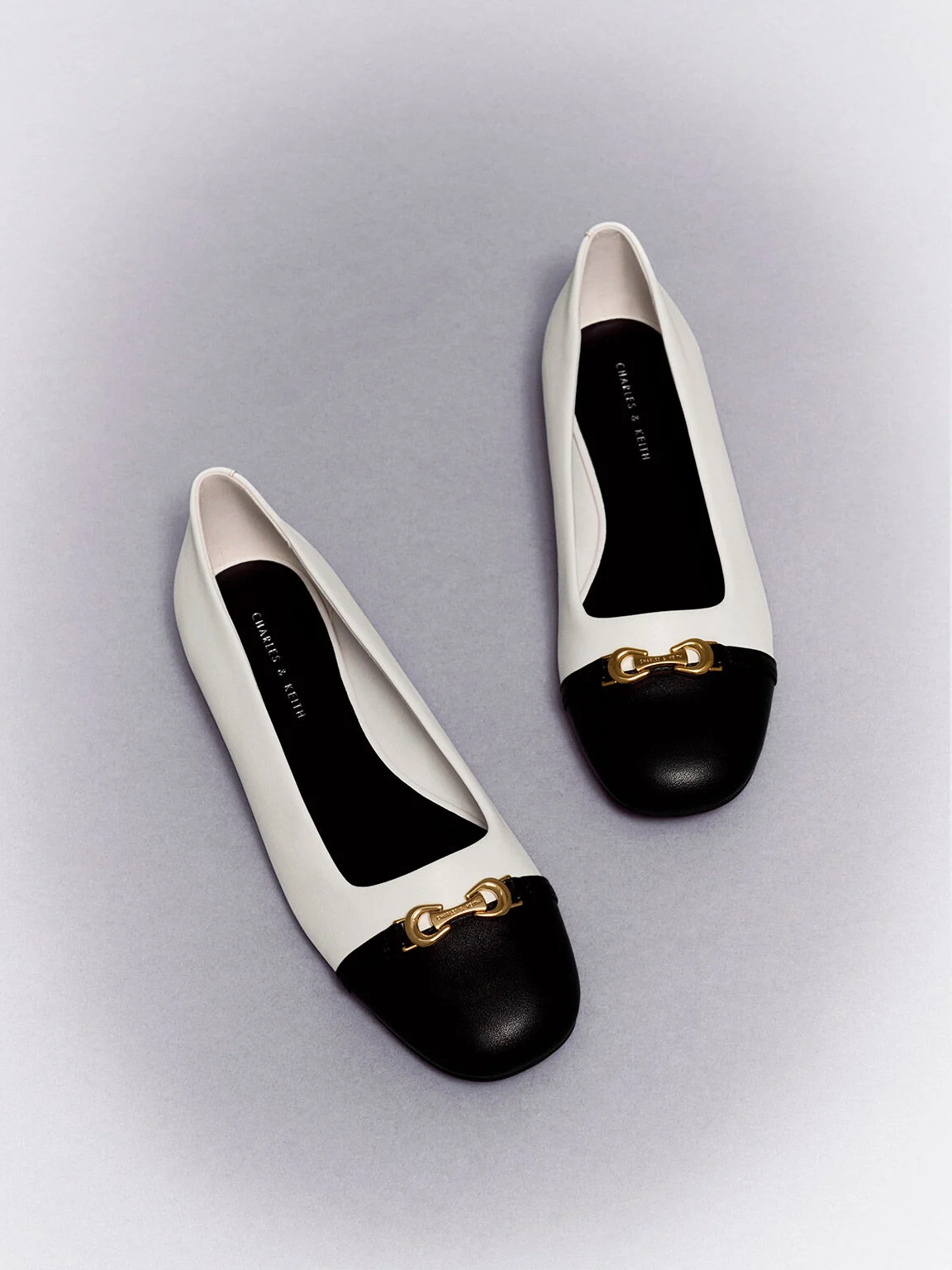
Classic Ballerinas
The epitome of simplicity and elegance, classic ballet flats feature a sleek, flat sole and a round or almond-shaped toe. Timeless in its design, these are the go-to choice for a clean and polished look — they will add a feminine touch to any outfit you wear.
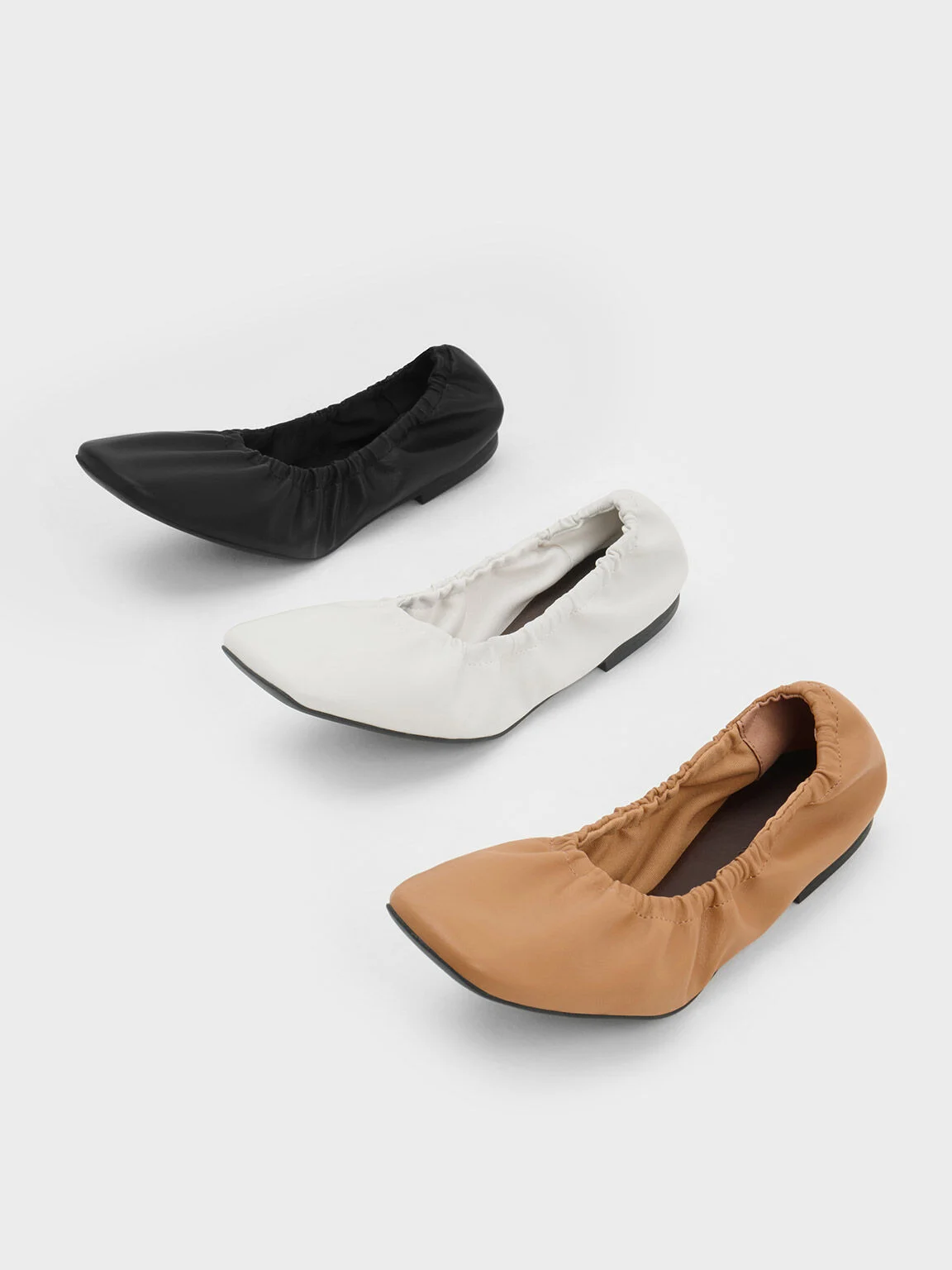
Ruched Ballerinas
With a softly gathered upper and a ruched, elastic opening, ruched ballet flats are more reminiscent of the full-sole ballet shoes ballerinas wear. With the addition of the subtle and stylish ruching detail, this variant of the ballet flat stretches more comfortably to accommodate wider feet.
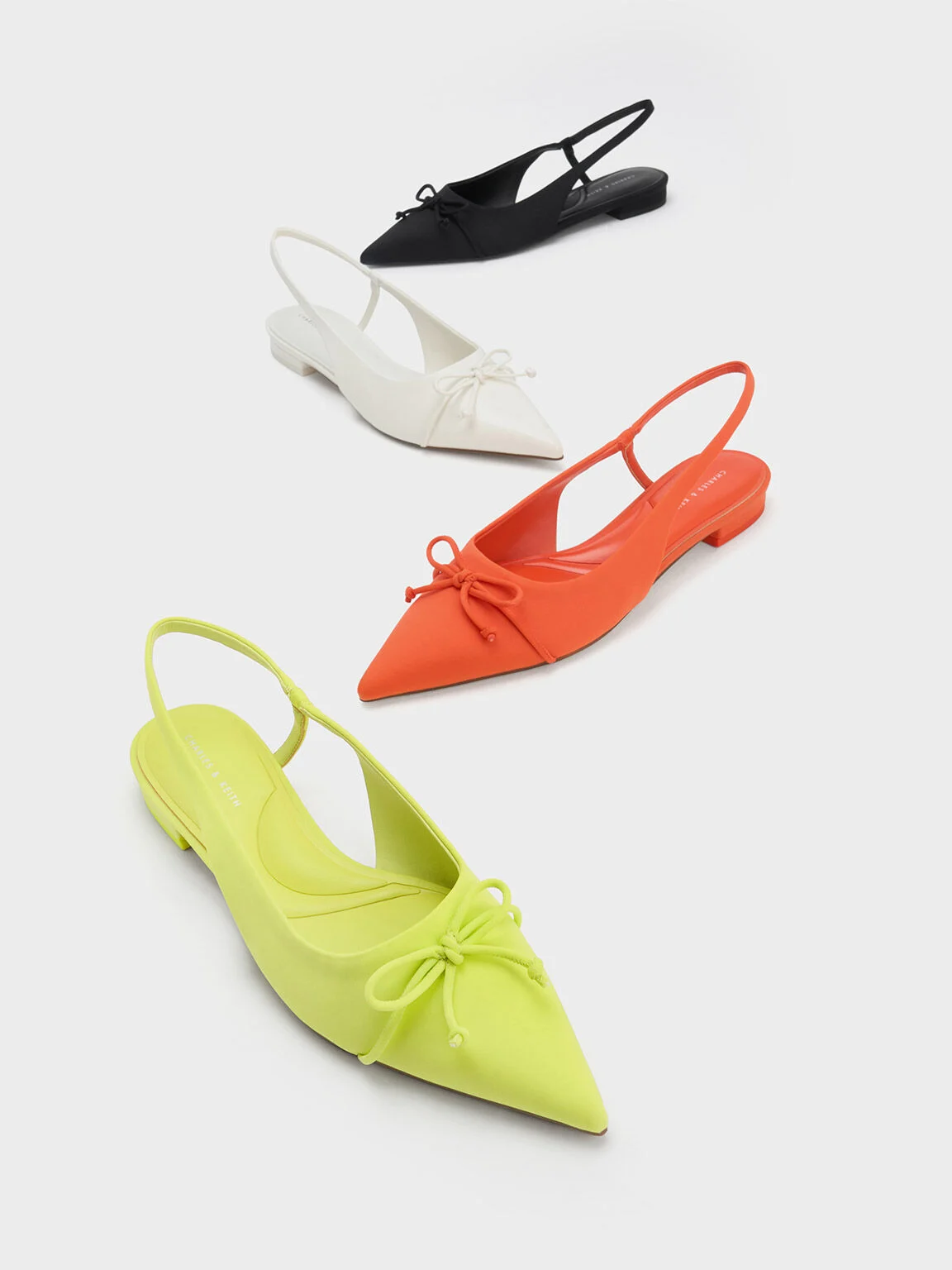
Slingback Ballerinas
Slingback ballet flats are characterised by straps that go around the back of the heels, adding a playful twist to the traditional design while also providing non-slip support to the shoe. Suitable for both casual and formal occasions, they are easy to slip on and off.
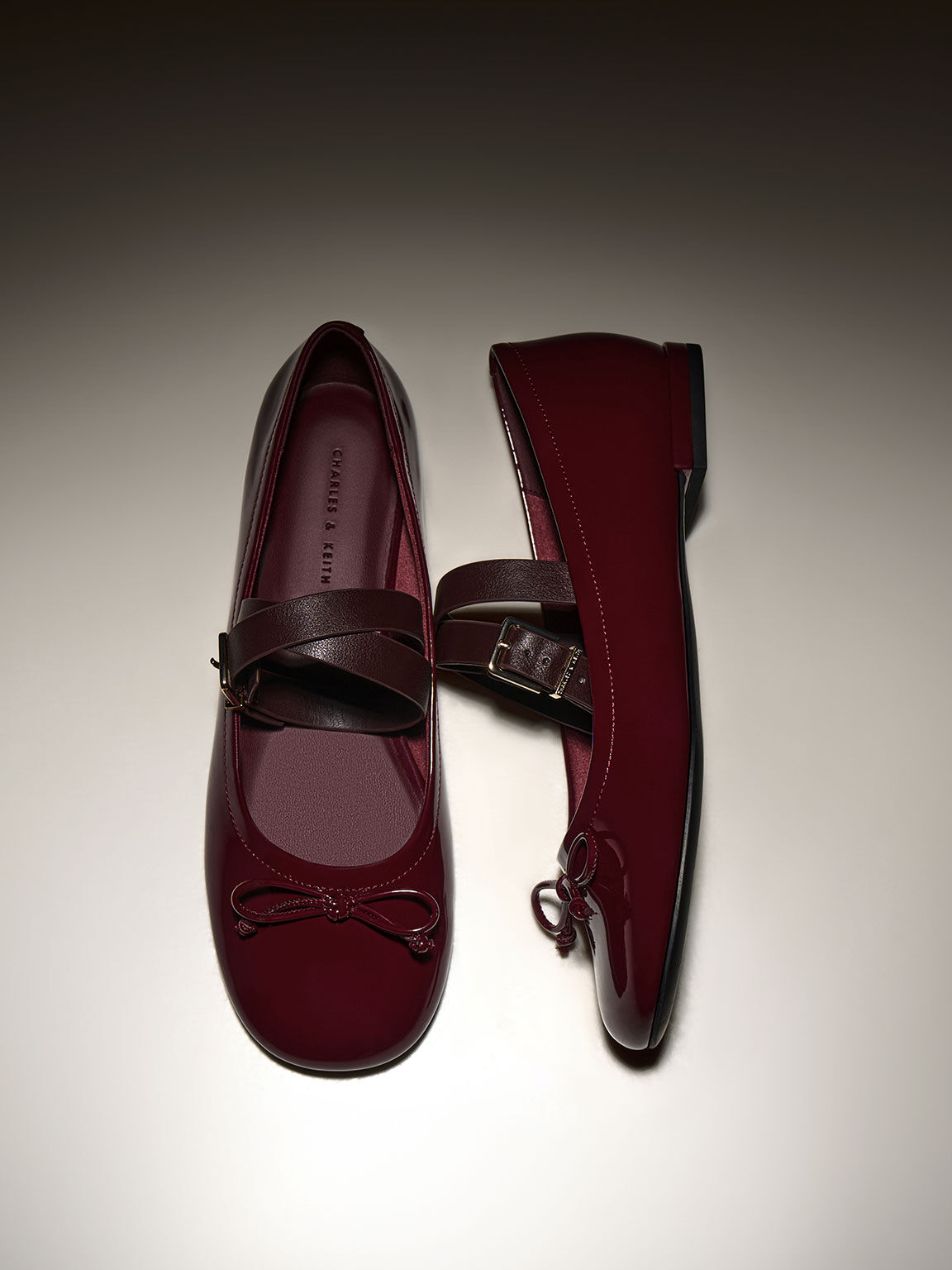
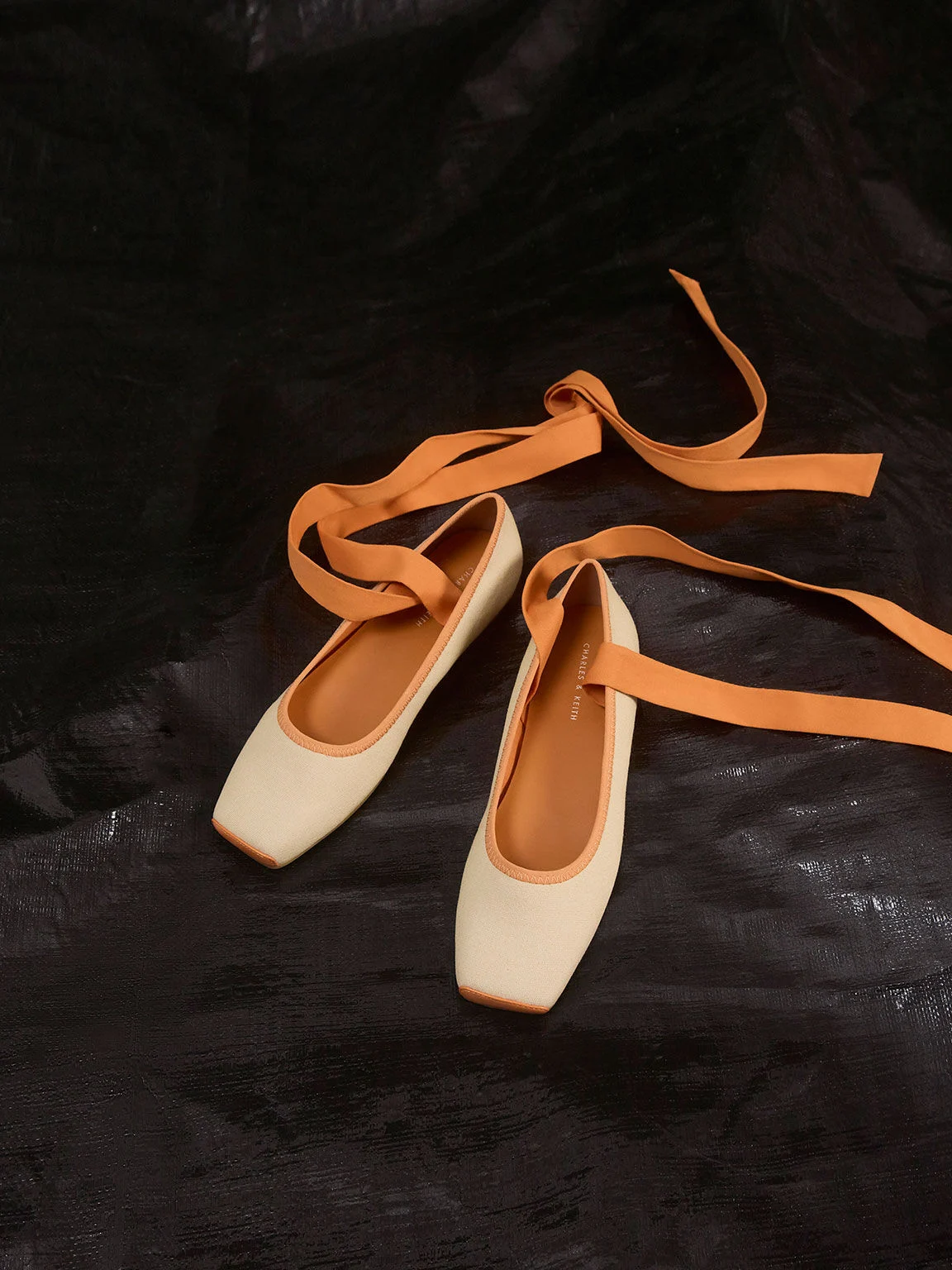
Ballerinas with straps & laces
Ballet flats with straps and laces are functional and fun at once, providing an extra secure fit while adding visual interest to the designs. Adorned with tie-around ribbons or laces, this iteration of the ballet flat allows you to get creative with styling — emulate the classic ballerina look by criss-crossing the straps up the legs, do a simple knot around the ankles, or go bold with an eye-catching bow.
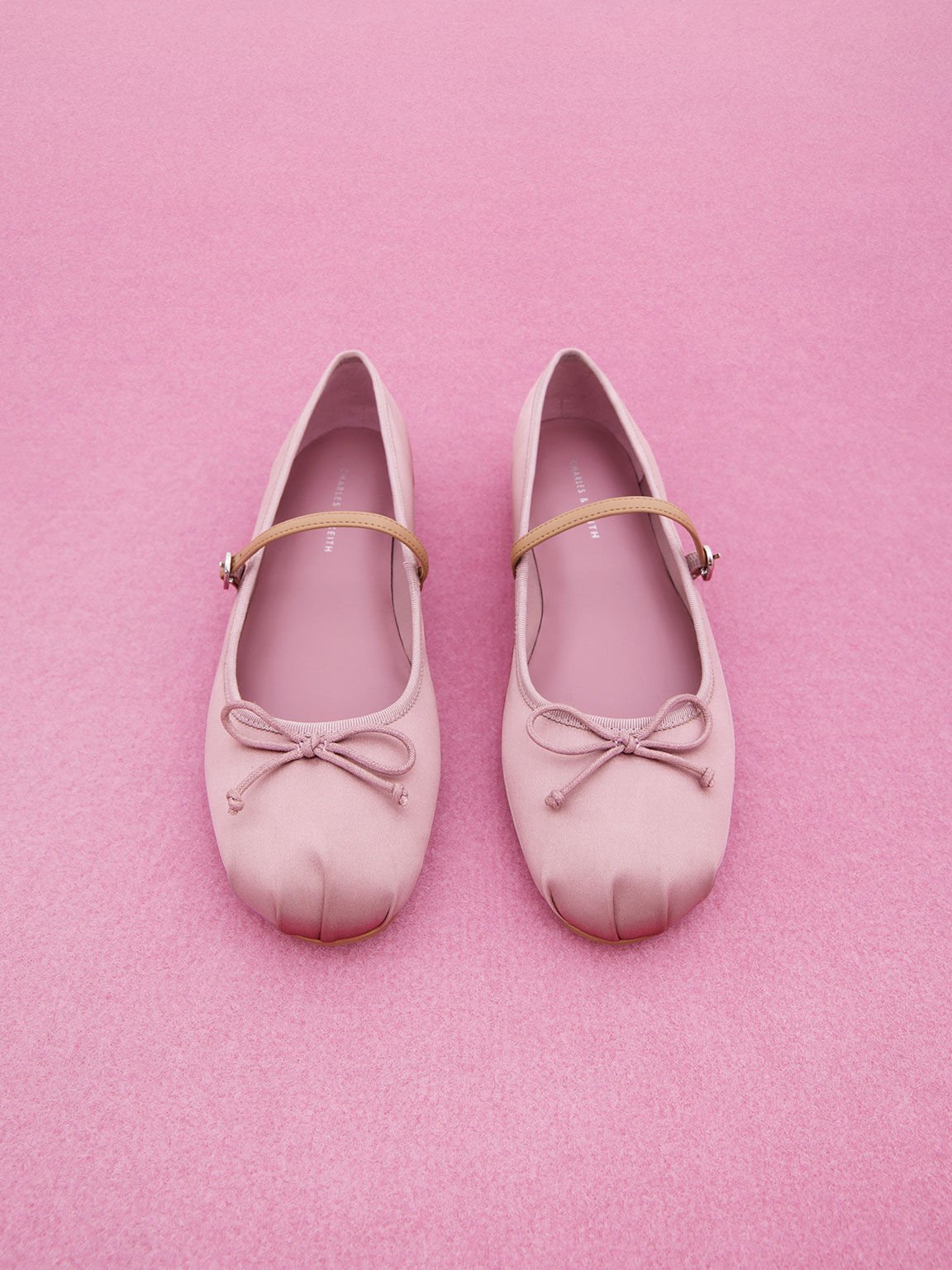
Mary Jane Ballet Flats
Mary Jane ballet flats pay homage to the iconic Mary Jane show style with a strap that fastens across the instep. A sensible and sweet style, these flats exude a retro charm and are a fantastic choice for a vintage-inspired outfit.
Chunky Ballet Flats
Chunky ballet flats combine the classic ballet flat silhouette with a thicker, more substantial sole. Ideal for those who seek the comfort of ballet flats, with the added benefit of more cushioning, support and a height boost, this version of the ballet flat has an edgier, more youthful aesthetic.
How to wear and style Ballet Flats
Ballet pumps are a timeless fashion staple. Their graceful silhouette and comfortable design make them a go-to choice for various occasions. Additionally, ballet pumps also possess the ability to complement a wide range of outfits, adding a touch of feminine elegance to any ensemble. Whether you are heading to the office, enjoying a leisurely weekend brunch, or attending a fancy evening soirée, ballet flats can elevate your look. In this guide, we will explore the art of pairing these classic shoes with different outfits, offering practical tips to help you step out with style and confidence.
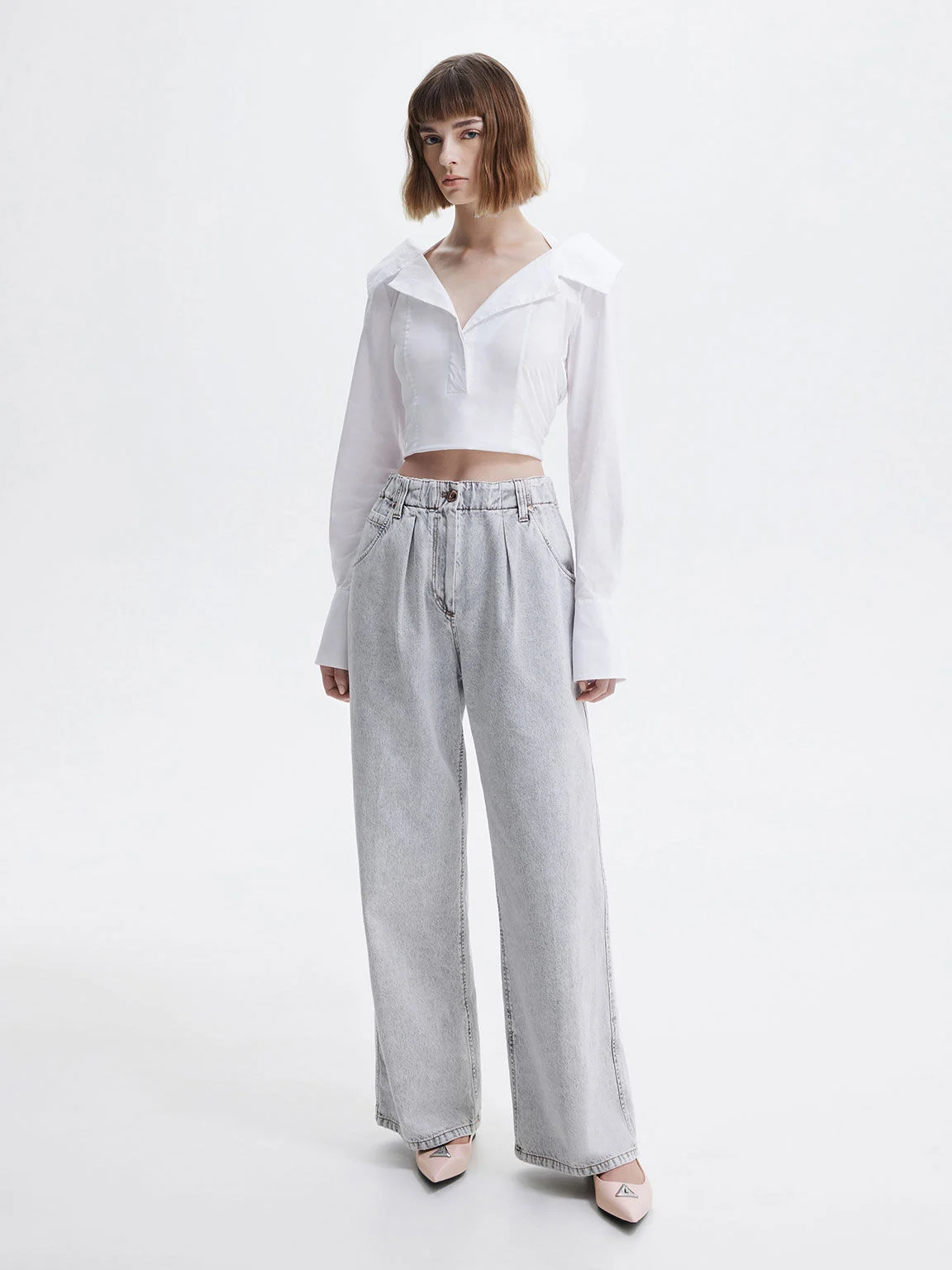
Casual / Off-Duty
Styling ballet pumps with casual everyday wear is an effortless way to look chic. Start with jeans or leggings for a laid-back foundation. The slim silhouette of the flats complements the sleek lines of the bottoms, creating a balanced and relaxed look. Opt for a loose-fitting, breezy top, like a soft cotton tee or a casual blouse, to maintain an easy-going vibe. Enhance the casual charm with a denim jacket or a lightweight cardigan, especially during cooler days. Accessorise with a crossbody bag or a statement necklace. This ensemble effortlessly bridges comfort and style, making ballet flats a versatile choice that will always work well.
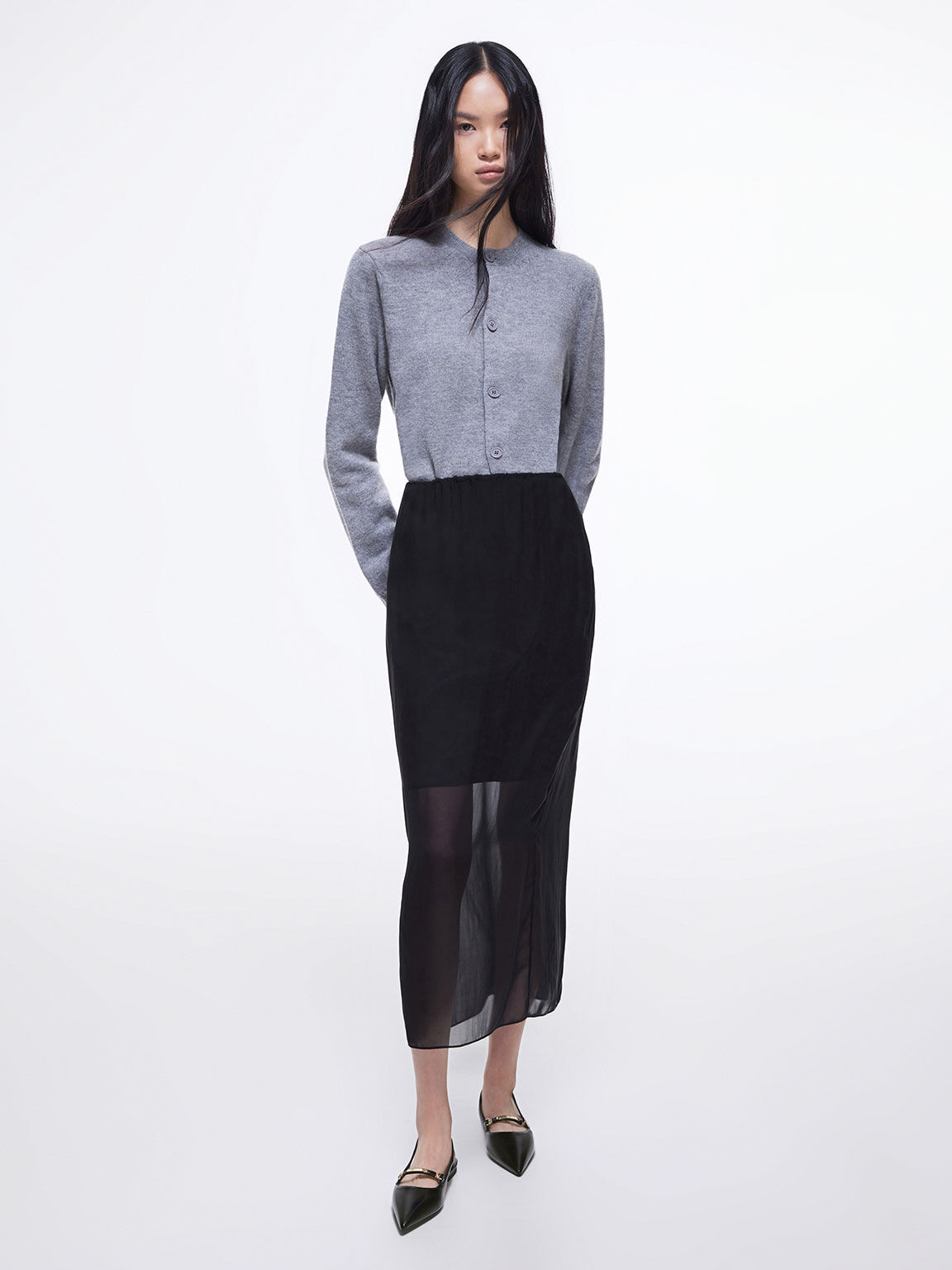
Office / Professional
Their modest yet chic and elegant design makes ballet flats perfect for the workplace. They will go well with anything from ankle-length trousers to pencil skirts, especially when you choose an elegant, refined and sophisticated neutral tone. Consider pairing them with a structured blazer or a chic cardigan to create a comfortable, layered look that is still professional. Keep accessories minimal and opt for a sleek wrist watch or subtle stud earrings to maintain a clean and polished appearance. This ensemble is undeniably stylish and business-like at once.
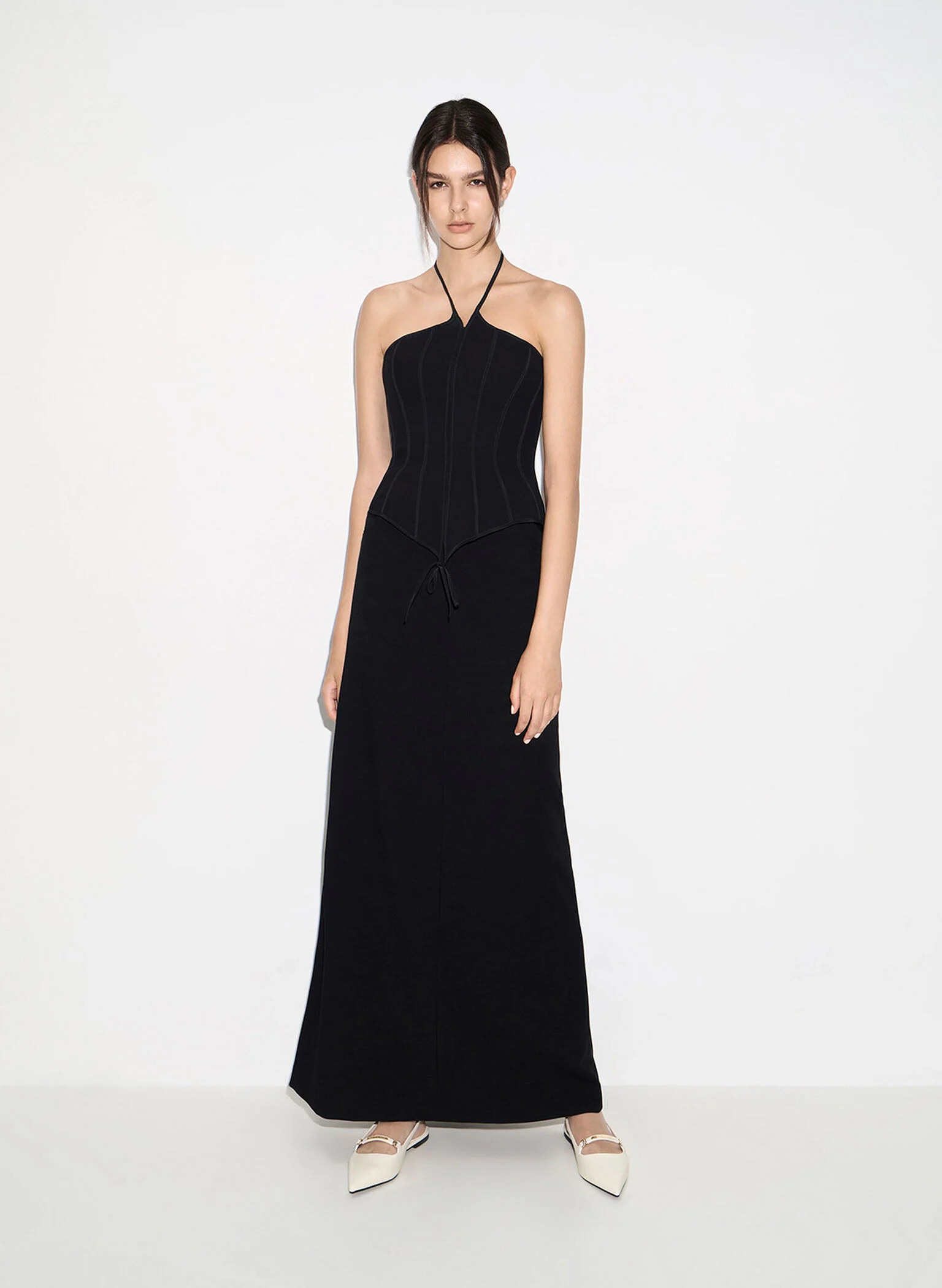
Evening / Glamour
Ballet flats are a practical and polished choice for evening soirees and other formal events. Opt for ballet flats embellished with sequins, bows, or metallic accents that will add a special touch to your outfit without overwhelming it. Ankle straps or lace-up detailing can also contribute to an elegant and refined aesthetic. They will perfectly complement a voluminous maxi skirt or striking cocktail dress. Alternatively, consider pairing them with an industrial-chic jumpsuit for a modern, utilitarian twist. Enhance the feminine allure of the ballet flat with statement accessories like a clutch bag and drop earrings.
Common Concerns of Ballet Flats
While we all love the dainty and elegant silhouette of ballet flats, as well as how incredibly wearable and versatile they are, these popular shoes have certain drawbacks that you should take note of.
Common issues
1. Narrow Toe Room
Due to the design of ballet flats, most of these shoes feature a narrow and tight-fitting toe box. The narrow toe space could cramp the toes, potentially causing blisters and calluses, especially after long hours of wear.
2. Minimal Cushioned Support
The flat nature of these shoes often means that there is minimal cushioning for the soles. In addition to their strap-free and lace-free design, prolonged walking in ballet flats could result in short-term effects, such as soreness and discomfort.
3. Little To No Arch Support
Lastly, ballet flats traditionally do not offer much arch support, and this can lead to foot issues such as plantar fasciitis — inflammation of the lower foot and heel tissue — which can cause higher stress and tension in your joints and muscles.
But fret not, you can still wear your favourite ballet flats by making a few adjustments to ensure comfort and better support.
The Solutions
1. Find The Perfect Fit
First and foremost, when it comes to buying a pair of ballet flats (or any type of shoe), it is important to find a pair that fits you. Simply put, one that is well-fitted to your foot shape and size. In particular, choosing a design that does not cramp your feet while offering sufficient toe space and width is key — we all love a little wiggle room for our toes!
Other features that will make ballet flats stay comfortable on your feet include sufficient cushioning and low block heels that effectively lifts the arch, which effectively reduce stress and tension. Also opt for soft, flexible materials, like leather. Leather shoes are also more likely to expand and mould to your feet, allowing for a more comfortable fit.
2. Invest In Quality Shoe Accessories
Shoe accessories can make a big difference. Ensuring your ballet flats are fitted with ample cushioning — with the use of quality shoe pads or inner sole cushions — will really enhance your experience of wearing them. Our range of foot care accessories, including heel pads and foot cushions, are designed specifically for comfort and ease.
3. Wear Them In Moderation
Everything in moderation — even when it comes to wearing your favourite ballet flats. Keep a rotation of different shoe styles for everyday wear. Regularly swap out your ballet flats for shoe styles with more arch support, like sneakers, to minimise the risk of developing health issues that are commonly associated with wearing flat shoes.
There is little doubt that the ballet flat will continue to stay relevant in an ever-changing fashion world. Whichever type of ballet pumps you choose — whether they are polished classic ballerinas or eye-catching lace-up designs — they will be sure to offer incredible style mileage with their practicality and quiet, everyday elegance. While they are suitable for almost all kinds of occasions, including casual off-duty days and glamorous evening soirees, moderation is still key when it comes to these lovely shoes. If you are looking to add a pair — or three — of these evergreen shoes to your collection, our range of on-trend ballet flats will have you spoilt for choice.